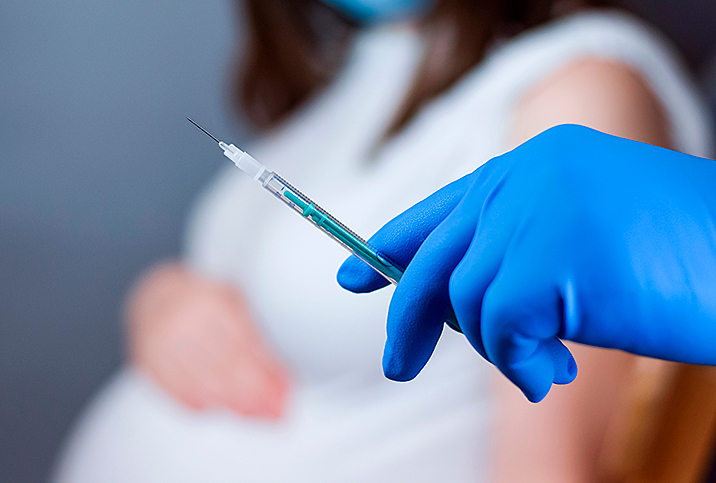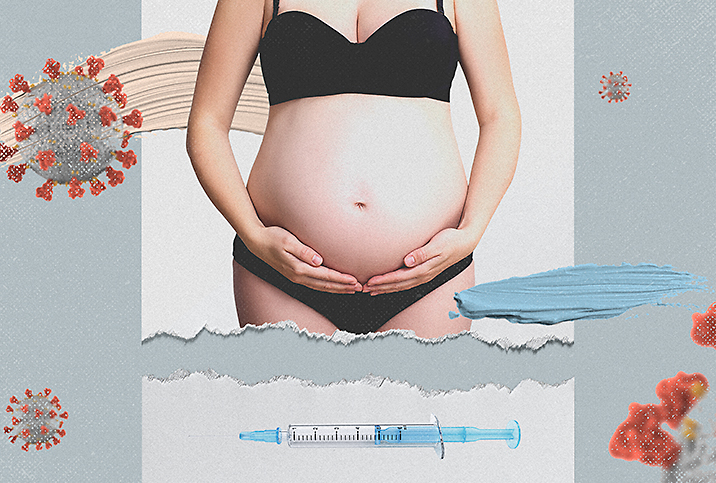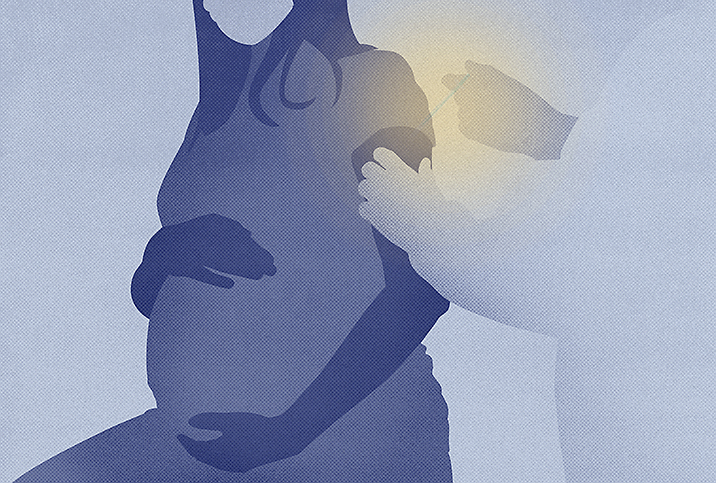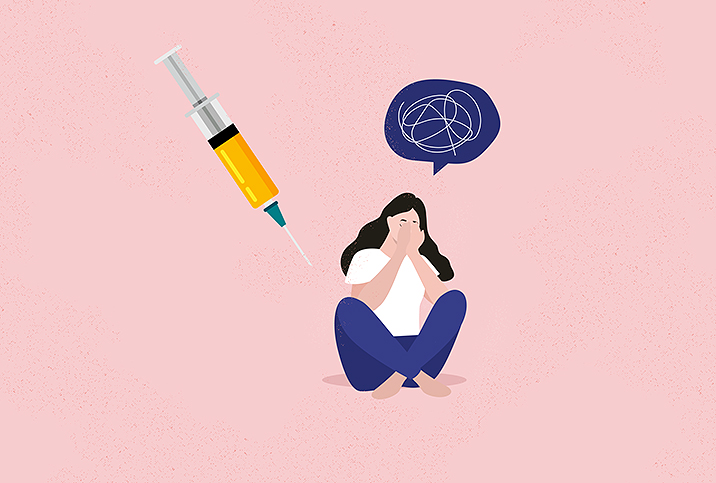A COVID-19 Booster Shot Is Recommended if You're Pregnant

Pregnancy transforms you from feeling like a single entity, accountable for only your own well-being, to having a sense of immense responsibility for a developing life that's entirely dependent on you. With this shift can come concern and anxiety over every health decision.
With a global pandemic interwoven through so much conscious decision-making, these anxieties can feel overwhelming—especially concerning medical recommendations about COVID-19 vaccine and booster shots.
All of the available scientific data on COVID-19 vaccines support vaccination for anyone who is trying to conceive, pregnant, postpartum or breastfeeding. The latest data also reveal a decline in the effectiveness of coronavirus vaccine protection against infections over time—and additional booster shot administration has been demonstrated to increase existing immune response.
"I highly recommend getting the booster shot if one is pregnant or trying to become pregnant," said Veronica M. Alvarez-Galiana, M.D., medical director of OB-GYN services at Community Health of South Florida. "It is especially important that pregnant people be vaccinated and receive the booster shot, because pregnant people are at higher risk of severe disease when it comes to COVID-19."
Individual doctors are not the only ones recommending the potentially lifesaving measure.
"The American College of Obstetricians and Gynecologists [ACOG] strongly recommends vaccination with a booster shot for all patients who are pregnant, for those trying to become pregnant, or who are recently postpartum," Alvarez-Galiana added. "And the CDC recently recommended that all adults, including pregnant people, receive the booster shot because of the threat of the new omicron COVID variant."
The risks of being pregnant and unvaccinated
Vaccination offers all people protection against COVID-19 infection, hospitalization and death, according to the Centers for Disease Control and Prevention (CDC).
For pregnant people, these risks cannot be overstated. When pregnant, your immune system may be altered, potentially creating a higher risk of COVID-19 infection. A 2021 study expanded on this point, stating, "the fetus activates the immune response that changes the way the pregnant woman responds to the environment, which makes the immune response very unique during pregnancy."
Additionally, your body goes through an immense amount of physical change and hard work while expecting, including changes to your heart and lungs that can make viral infections more severe. In fact, the Society for Maternal-Fetal Medicine, ACOG and the CDC all state that COVID-19 infections while pregnant put you at three times higher risk of landing in the intensive care unit than if you were not pregnant.
As well, pregnant people with COVID-19 are two to three times more likely to require advanced life support and a breathing tube, and have a small but significant increased risk of dying due to the virus. It's also important to note that having COVID-19 while pregnant could put your fetus at risk of stillbirth or preterm birth.
More on the booster
Think of a booster shot as providing additional defense in the form of antibodies for you and your unborn child. COVID-19 vaccination passes on antibodies through the umbilical cord blood and placenta to the baby. The same happens postbirth through breast milk. While research has not yet determined whether booster shots have the same effect, it is reasonable to assume they do, considering the effectiveness of the vaccine to pass on antibodies.
When to get the shots
"Doctors like myself are recommending that pregnant women and everyone should take the vaccine and the booster shot, and don't delay, especially given that the new variant will eventually make its way here," Alvarez-Galiana advised.
"If the appropriate interval of time has passed from receiving the second injection, pregnant people are advised to get the booster," said Kecia Gaither, M.D., who is double-board-certified in OB-GYN and maternal-fetal medicine, and works in New York City.
The Pfizer-BioNTech or Moderna COVID-19 booster, when administered six months after the initial series of vaccines, or the Johnson & Johnson booster at least two months after the first shot, is recommended. No matter which vaccine you received initially, you can get any booster shot, according to ACOG guidelines.
Risks of the vaccine
The vaccine and booster shots pose slim risks. The most important aspect to remember is that the benefits of getting vaccinated or adding a booster shot outweigh any risks involved.
One potential risk is blood clotting, which occurred in a small number of pregnant people after receiving the Johnson & Johnson vaccine. While this potential side effect is rare, you should discuss it with your healthcare provider. They may recommend Pfizer or Moderna instead.
Otherwise, side effects are mild.
"As with any vaccination, there may be soreness at the injection site, muscular aches, low-grade fever and fatigue," Gaither said.
Doctors recommend you get boosted
"It's very important that pregnant women, or even if you are trying to get pregnant...take the vaccine," Alvarez-Galiana said. "Studies have also shown that there is no impact on fertility. And I've taken my own advice as I'm fully vaccinated, have received the booster shot and recently became pregnant. And I would do so again if I had to."


















